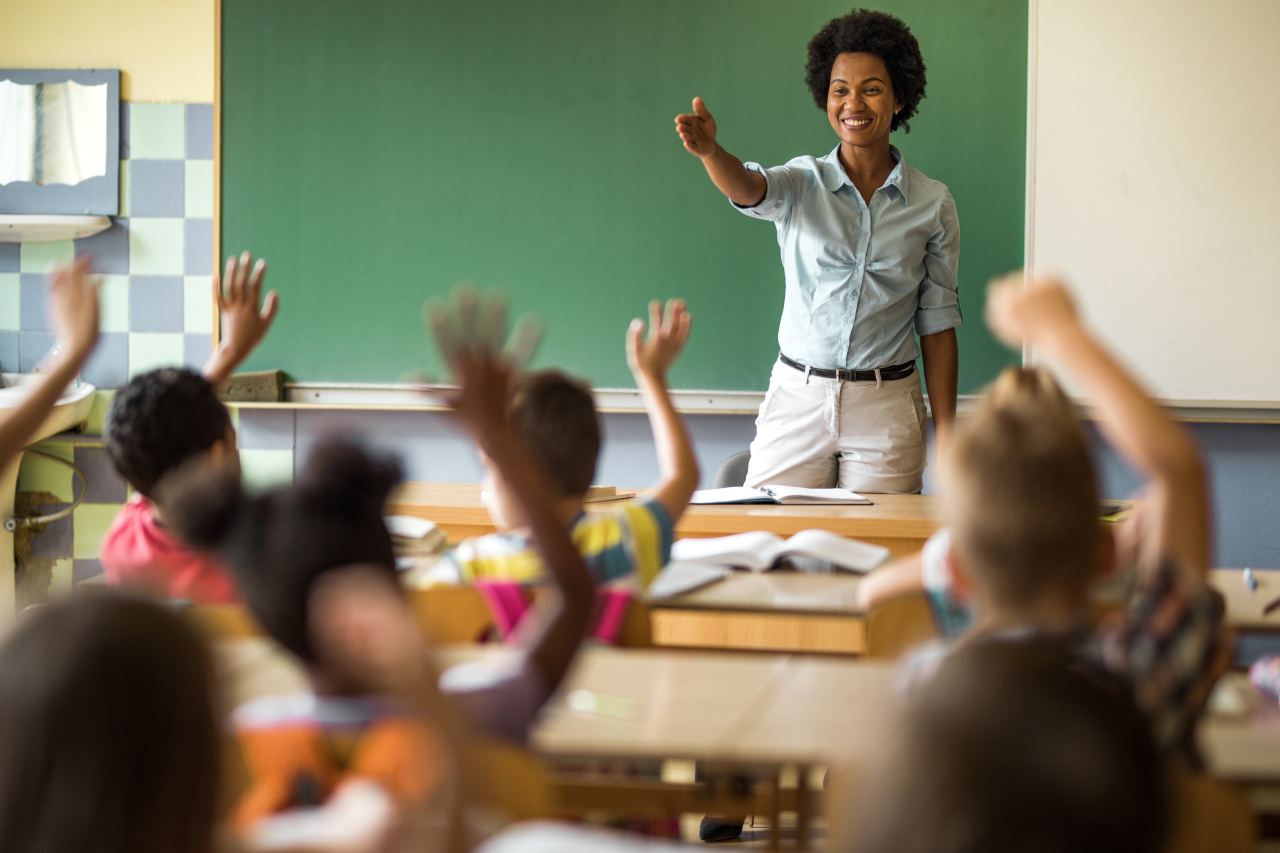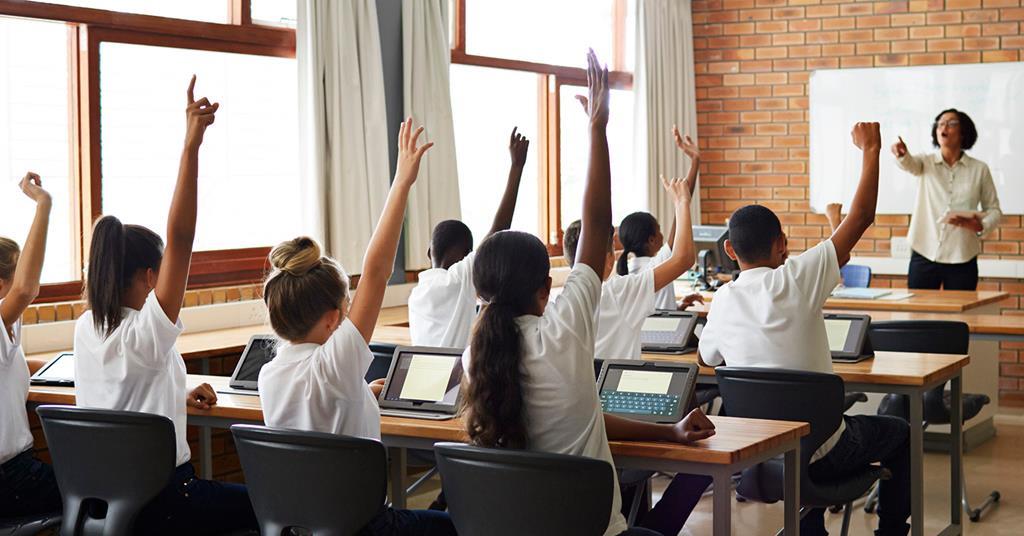Discover the Best Primary Science Tuition Singapore for Your Learning Journey
Discover the Best Primary Science Tuition Singapore for Your Learning Journey
Blog Article
Discovering the Different Training Approaches in Key Science Education Today
The landscape of key science education is evolving, with different teaching methods gaining importance in modern class. Inquiry-based understanding, hands-on experiments, and the combination of innovation are redefining exactly how teachers engage young minds. Additionally, collective techniques and distinguished direction are being used to accommodate the varied demands of pupils, enhancing both engagement and understanding. As we check out these techniques, concerns occur concerning their effectiveness and the implications for future instructional practices. What might these changes in approach mean for the future generation of learners?
Inquiry-Based Understanding
Inquiry-Based Knowing (IBL) is an instructional method that encourages students to check out scientific concepts through wondering about, examination, and hands-on trial and error. This technique emphasizes the duty of pupils as energetic individuals in their knowing, promoting critical reasoning and problem-solving skills. By involving with real-world questions, students become determined and interested, which improves their understanding of scientific concepts.
In IBL, educators function as facilitators, directing students as they navigate their questions rather than supplying info straight. This student-centered method permits differentiation, fitting numerous finding out paces and designs. Trainees establish skills in formulating hypotheses, making experiments, and analyzing data, which are critical for scientific literacy.
Furthermore, IBL promotes partnership among pupils, encouraging them to share findings and concepts. This collective query promotes social abilities and a sense of neighborhood within the class. The process of inquiry encourages strength, as students discover to embrace failure as a tipping rock toward understanding.
Hands-On Experiments
Hands-on experiments are an important component of effective science education and learning, matching the concepts of inquiry-based discovering. These experiments allow students to engage straight with scientific concepts, fostering a deeper understanding with experiential discovering. By controling materials and observing end results, young learners can realize abstract concepts in substantial means.
Such tasks promote critical thinking and problem-solving abilities, as students assume end results, conduct experiments, and assess results. This process urges them to ask inquiries, fine-tune their understanding, and develop a scientific frame of mind. Hands-on experiments can be customized to diverse understanding designs, making certain that all trainees have the chance to involve meaningfully with the material.
Furthermore, hands-on experiments commonly urge partnership among peers, promoting synergy and communication skills. Operating in teams allows trainees to share ideas, discuss searchings for, and learn from each other, which boosts their total instructional experience.
Incorporating hands-on experiments into the primary science curriculum not just improves the finding out setting however additionally cultivates a long-lasting rate of interest in science. By actively taking part in their education and learning, trainees are most likely to establish an enthusiasm for scientific inquiry that expands past the class.

Technology Combination
Integrating innovation into primary science education has come to be significantly essential in promoting student interaction and improving learning outcomes. The usage of electronic tools, such as interactive simulations, digital laboratories, and educational software application, supplies pupils with opportunities to check out scientific ideas in ingenious means. These resources facilitate a deeper understanding of intricate topics by allowing learners to picture and manipulate variables that would certainly be impractical in a typical classroom setup.
In addition, modern technology combination encourages customized learning experiences. Trainees can progress at their very own pace, taking another look at challenging principles through multimedia sources, which satisfy various discovering designs. This flexibility not only sustains private development yet also cultivates a feeling of freedom in students.
In addition, innovation functions as a bridge to real-world science, connecting trainees with current research and professional contributions. Access to on-line data sources and scientific journals expands students' perspectives on scientific inquiry and fosters essential believing skills.
Collaborative Discovering
Collaborative discovering plays an important role in main scientific research education by cultivating team effort and interaction abilities among pupils. This strategy motivates learners to interact, share expertise, and involve in analytical, which improves their understanding of scientific ideas. By joining team activities, pupils discover to verbalize their concepts, pay attention to varied perspectives, and bargain options, every one of which are important skills in both academic and real-world contexts.

Research shows see page that collaborative discovering can cause raised motivation and engagement in science subjects, as pupils find satisfaction in shared experiences (primary science tuition Singapore). Furthermore, this technique prepares trainees for future joint endeavors, furnishing them with the skills needed for effective synergy in greater education and specialist environments. Eventually, welcoming collective learning in primary science education and learning can substantially enhance the knowing experience and promote a deeper understanding of scientific questions
Differentiated Guideline

Differentiated instruction can manifest in different means, such as varying the web content, procedures, or items of understanding. For instance, teachers may utilize tiered projects that provide differing degrees of complexity, enabling pupils to function at their respective preparedness levels. Furthermore, adaptable organizing approaches can assist in cooperation amongst trainees with different capabilities, cultivating peer discovering.
Assessment plays a critical function in this strategy, as it informs guideline and assists instructors recognize each student's unique needs. Formative assessments, such as observations and quizzes, can guide instructors in adjusting their methods to enhance finding out results. primary science tuition Singapore. Ultimately, by carrying out distinguished direction in key science education, teachers can grow a much more fair and effective knowing environment, equipping all pupils to reach their full potential in recognizing scientific phenomena
Conclusion
In summary, the varied teaching approaches in primary science education and learning, including inquiry-based discovering, hands-on experiments, technology assimilation, joint understanding, and differentiated guideline, jointly add to an extra reliable learning atmosphere. These techniques advertise crucial reasoning, analytic abilities, and a much deeper understanding of scientific concepts. By carrying out these strategies, teachers can develop supportive and engaging classrooms that attend to the varied needs of pupils, ultimately fostering a lifelong interest in scientific research and enhancing academic accomplishment.
Inquiry-Based Understanding (IBL) is a pedagogical technique that urges pupils to check out clinical concepts via wondering about, examination, and hands-on testing.Collaborative understanding plays a crucial role in main science education by promoting team effort and interaction skills amongst pupils.Research suggests that collaborative knowing can lead to enhanced inspiration and engagement in scientific research topics, as students discover satisfaction in shared experiences.In cultivating a comprehensive understanding setting, set apart direction arises as a vital approach to fit the diverse demands and capacities of students in click here for more primary science education. Inevitably, by implementing distinguished instruction in primary scientific research education, teachers can cultivate an extra effective and equitable knowing atmosphere, empowering all trainees to reach their full possibility in comprehending scientific sensations.
Report this page